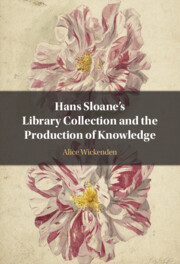Book contents
- Hans Sloane’s Library Collection and the Production of Knowledge
- Hans Sloane’s Library Collection and the Production of Knowledge
- Copyright page
- Contents
- Illustrations
- Tables
- Acknowledgements
- Introduction
- Chapter 1 Hans Sloane’s Library
- Chapter 2 Plants and/as Books
- Chapter 3 Repeating Books
- Chapter 4 Unreadable Books
- Chapter 5 Image Books
- Conclusion
- Appendices
- Bibliography
- Index
Conclusion
Future Use
Published online by Cambridge University Press: 20 November 2025
- Hans Sloane’s Library Collection and the Production of Knowledge
- Hans Sloane’s Library Collection and the Production of Knowledge
- Copyright page
- Contents
- Illustrations
- Tables
- Acknowledgements
- Introduction
- Chapter 1 Hans Sloane’s Library
- Chapter 2 Plants and/as Books
- Chapter 3 Repeating Books
- Chapter 4 Unreadable Books
- Chapter 5 Image Books
- Conclusion
- Appendices
- Bibliography
- Index
Summary
The conclusion asserts that a library is best understood as something fluid and potential in the same way that the books within it may also hold the potential to be objects. It points out that libraries have always contained other objects, such as medals and coins, and reminds the reader that the library space is a constructed one, not a neutral or inevitable one.
Information
- Type
- Chapter
- Information
- Hans Sloane's Library Collection and the Production of Knowledge , pp. 201 - 204Publisher: Cambridge University PressPrint publication year: 2025
